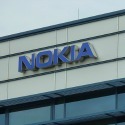Finnish vendor heralds good progress on cost savings and the implementation of its new strategy.

Nokia has suffered a sharp fall in sales and earnings for the final three months of 2016, blaming the setback on continued tough market conditions but heralding good progress on its cost-savings program.
The Finnish vendor said that comparable net sales were down 13%, to about €6.7 billion ($7.2 billion), compared with the year-earlier period, while operating profits tumbled 27%, to €940 million ($1.02 billion). Buoyed by its takeover of Alcatel-Lucent last year, net profit rose 32%, to €658 million ($711 million).
Despite the sales decline, Nokia's share price was trading up more than 3% in Helsinki this morning, with investors encouraged by some operational improvements and Nokia's efforts to target new types of customer.
Like rival Ericsson AB (Nasdaq: ERIC), Nokia Corp. (NYSE: NOK) has been hit by a slowdown in its main equipment markets as service providers cut spending on mobile networks. It has also lost out to low-cost Chinese rivals Huawei Technologies Co. Ltd. and ZTE Corp. (Shenzhen: 000063; Hong Kong: 0763), which have continued to grow sales even as Western manufacturers struggle. (See Huawei's Network Sales Up Around 32% in 2016.)
Nokia expects its network revenues to fall by 2.2% this year, in line with the shrinkage of its main addressable market, and says it will target expansion in the enterprise sector in pursuit of long-term growth. (See Nokia to Create Standalone Software Biz, Target New Verticals and Nokia's New Software Unit to 'Redesign' Company.)
Nokia CEO Rajeev Suri said he was "disappointed" with the revenue performance last year but drew attention to the good progress on cost savings following the swift integration of the Alcatel-Lucent (NYSE: ALU) business, which Nokia acquired in a €15.6 billion ($16.9 billion, at today's exchange rate) deal in early 2016.
At the all-important networks business, which accounts for 90% of total revenues, the operating margin came in at 8.9% in 2016 -- at the upper end of Nokia's previous 7-9% guidance range. On a comparable basis, accounting for the takeover of Alcatel-Lucent, the operating margin shrank to 14.1% in the October-to-December quarter, from 15.5% in the year-earlier period.
"We continue to expect our performance to improve in 2017 and see the potential for margin expansion in 2017 and beyond, as market conditions improve and our sales transformation programs gain further traction," said Suri in a company statement.
The performance stands in sharp contrast to that of Sweden's Ericsson, which last month revealed that its fourth-quarter operating margin had fallen to just 6.7%, excluding restructuring charges, from 16% a year earlier, despite its own cost-saving efforts. (See Loss-Making Ericsson Still Short on Vision.)
For all the latest news from the wireless networking and services sector, check out our dedicated mobile content channel here on Light Reading.
Suri also highlighted some early success outside its traditional telco markets. "Our sales pipeline with customers beyond our traditional communications service provider base accelerated over the course of the year, we saw an increasing share of our networks pipeline coming from opportunities covering products and services from two or more of our business groups, and the potential of cross-selling started to become a reality," he said.
Investors will have taken heart from the reference to "cross-selling," which Nokia had identified as a major incentive for the Alcatel-Lucent takeover. By combining its own mobile expertise with the fixed-network and IP capabilities of Alcatel-Lucent, Nokia had hoped to secure a bigger share of contracts with service provider customers.
The acquisition has also given Nokia an answer to the competitive challenge from Huawei, which has been able to land deals covering the whole array of fixed, mobile and IP requirements.
That is becoming increasingly important as telcos worldwide look to provide the full spectrum of communications services to their customers.
Delving into the details of results, Nokia blamed its topline setback mainly on a fall in sales of radio network equipment at its ultra-broadband networks division, where comparable revenues dropped 15%, to €4.3 billion ($4.7 billion), in the fourth quarter (compared with the year-earlier period).
Despite some recent industry optimism about the fixed broadband market, sales of fixed broadband equipment were down 22%, to €544 million ($588 million), on a year-on-year basis. (See Adtran Reaps Rewards of Vectoring Ramp-Up at Deutsche Telekom.)
At the IP networks and applications business, which largely comprises assets that Nokia acquired during the Alcatel-Lucent takeover, comparable revenues fell by 12% in the fourth quarter, to €1.7 billion ($1.8 billion), compared with the year-earlier quarter. That decline reflected a slowdown in the market for IP routing and optical networks, said Nokia.
Nokia also generated €309 million ($334 million) in fourth-quarter sales from its technologies division, which licenses intellectual property to other players. Revenues were 25% lower than in the fourth quarter of 2015 due partly to "licensing income from certain existing licensees that experienced decreases in handset sales."
— Iain Morris, 

 , News Editor, Light Reading
, News Editor, Light Reading
Read more about:
EuropeAbout the Author(s)
You May Also Like











